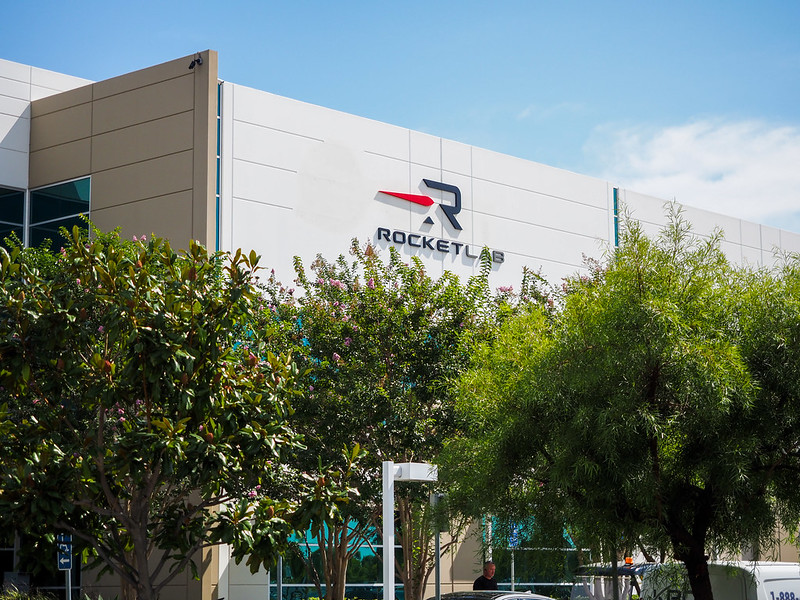Latest News

Rocket Lab’s engine development center in Long Beach, California. Photo: Austin Adams/ Rocket Lab
Rocket Lab grew revenue 16% in 2023 year-over-year, and the company announced its fourth quarter financials on Feb. 27, along with an official lineup of its family of spacecraft buses. Rocket Lab reported $244.6 million in revenue in 2023.
Space Systems contributed $172.7 million in revenue — up 15% year-over-year. Space Systems is about 71% of Rocket Lab’s revenue. It made up the same portion of Rocket Lab’s business in 2022, after rapidly expanding since 2021. Rocket Lab said Space Systems business growth is driven by the company’s component business and revenue from the MDA contract to build buses for Globalstar’s network upgrade.
Launch contributed $71.9 million in revenue — up 18.5% year-over-year. Rocket Lab reached a record 10 launches in 2023, despite a failure that paused missions for a time while Rocket Lab engineered a fix.
Fourth quarter revenue was $60 million, in line with revised guidance provided in January, below the low end of the original guidance. Rocket Lab said this was because one of its planned fourth quarter launches was pushed back because it took longer than anticipated to fix the September anomaly.
CFO Adam Spice said during a call with investors that Rocket Lab’s aggregate Electron backlog reflects an average price of $8.1 million.
The company expanded its GAAP and non-GAAP gross margins by 12 and 6.9 percentage points, respectively, Net loss in 2023 was $182.6 million, compared to $135.9 million in 2022.
With about $245 million in revenue in 2023, Rocket Lab is not quite hitting the revenue projections it made when it first announced plans to go public — at the time, the company projected it would hit $267 million in 2023 — but it’s not as far off as other SPAC projections.
Rocket Lab ended 2023 with just over $1 billion of total backlog. Launch backlog is $248.3 million and Space Systems backlog of $797.8 million. This is a 108% increase over the same time last year, mostly due to Rocket Lab’s nearly $500 million award from the Space Development Agency, the largest award in the company’s history.
“We continue to make meaningful progress towards our long-term financial model,” Spice said. “Increased Neutron investment will likely continue to drive EBITDA losses in 2024. As we move through the year, we believe a trend to improving scale and efficiency in our space systems business and Electron launch, cadence, and production efficiencies provide an optimistic outlook towards achieving our long-term target business model.”
Rocket Lab provided guidance for the first quarter of 2024, expecting revenue between $92 million and $98 million, which would represent sequential revenue growth of between 53% and 63%. This guidance assumes four launches.
Rocket Lab also recently raised $355 million in convertible senior notes, which CEO Peter Beck said gives the company the option for further M&A. He indicated an interest in payloads and sensors during the call with investors, two capabilities that Rocket Lab does not currently have.
“The end goal here is not just to be a bus provider or even a prime,” Beck said. “It’s to ultimately have our own constellation in orbit providing services because that’s where we ultimately think this all goes. Everything we do is within that kind of vision. And the same with any kind of M&A target, especially in the payload area.”
In another step in Rocket Lab’s evolution to an end-to-end space systems company, Rocket Lab released a formal lineup of its spacecraft bus line. As Beck joked about in a promotional video, Rocket Lab has built a number of different satellite buses, but so far has referred to them all simply as Photon.
The family of spacecraft includes Photon, which is a modified Electron Kick Stage and is an integrated launch-plus-spacecraft solution with a mass of 200 kg to 300 kg.
Lightning is the MDA bus model and is a roughly 3 kW bus ideal for high operational duty cycle telecommunications and remote sensing applications. Lightning can be launched on Neutron and other medium and heavy launch vehicles.
Pioneer is a highly configurable medium delta-V platform designed to support payloads up to 120 kg and unique mission profiles, including re-entry missions for Varda Space Industries, and dynamic space operations.
And Explorer is a high delta-V spacecraft with large propellant tanks, deep space capable avionics, and ranging transponders that can be used for planetary destinations like Mars and Venus, and the Moon. Explorer gained flight heritage during the CAPSTONE mission to the Moon for NASA.
“Photon was the start, but the Rocket Lab spacecraft family has grown,” Beck commented. “The hard development work is done, and now these spacecraft are available as off-the-shelf products, or they can be further customized to meet specific mission requirements.”
Get the latest Via Satellite news!
Subscribe Now